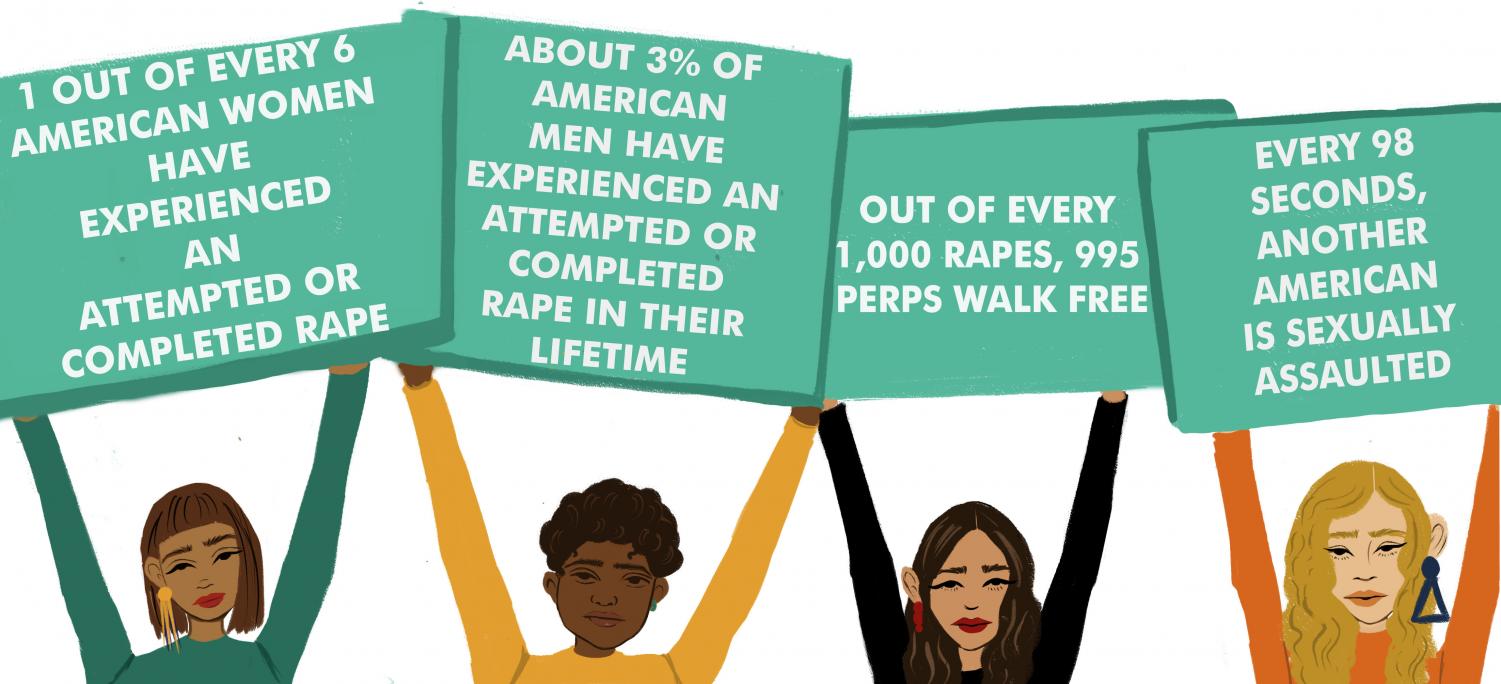College holds events for Sexual Assault Awareness Month despite low student interest
April 19, 2019
In a cultural climate that is bringing sexual assault to the forefront of public attention, Columbia’s Equity Issues Office is offering informational events during Sexual Assault Awareness month, but student turnout so far has been low.
In the first event of the month, only seven people attended the April 10 lecture organized by the Equity Issues Office, held in the Student Diversity and Inclusion Office, 618 S. Michigan Ave.
The presentation instructed attendees on how to be responsible bystanders to sexual assault or harassment by teaching methods of intervention, such as having friends give a thumbs-up or thumbs-down when someone is hitting on them at a party.
Director of Student Organizations and Leadership Orterio Villa said more students should utilize the college’s resources and the school should promote those resources. He added that promoting events is more than handing out informational fliers.
Villa attributed students’ infrequent use of campus resources and attendance at events to a lack of understanding of what qualifies as sexual assault and the cultural stigma behind asking for help.
“When I think about the stigma piece of it, that’s a bigger, broader umbrella of our rape culture in our day-to-day interactions,” Villa said. “That has a big impact on students feeling safe to utilize the resources.”
A lot of Villa’s work involves promoting Columbia’s sexual assault resources, which can be used to help students who feel threatened by adjusting their class schedules or taking interim measures to ensure victims do not run into perpetrators on campus, Villa said. He added that employees in Counseling Services and Student Relations are trained and licensed confidential advisors.

The college’s Equity Issues Office handles all sexual assault, harassment and misconduct cases, though it only files police reports at the student’s request. Faculty and staff are required to report any incidents, but students can also speak to a confidential advisor without it being reported to the Equity Issues Office.
According to the Rape, Abuse & Incest National Network, college women aged 18–24 have three times the risk of experiencing sexual violence compared to all women. Of all students nationwide, 11.2% experience rape or sexual assault, and 4.2% of students experience stalking.
Twenty-eight cases of rape and 35 cases of fondling were reported to Columbia between 2015 and 2017, according to the 2018 Annual Security and Fire Safety Report.
Sasha Solov, an advocate at Life Span—an agency that provides survivors with legal services, advocacy and counseling—hosts many of Columbia’s events about sexual assault prevention. She said it is crucial that colleges provide training and resources.
In workshops she has hosted at other colleges, Solov said she gets a wide variety of attendance rates and often has to use class credit or free food as incentives to attract students to the events.
“There has been greater conversation over the last several years about the epidemic of sexual violence on college campuses,” Solov said. “Young people often have gotten no education around consent, healthy relationships or boundaries.”
Having worked closely with Columbia in the past, Solov said the college’s Title IX staff are very engaged and committed to holding events for students, despite low engagement on students’ end.
For example, a presentation on how to take part in the emotional healing process for survivors of sexual assault will be held by the college on April 24 in The Loft, 916 S. Wabash Ave.
Instead of promoting events and resources through posters, senior advertising major Briana Kennedy said sending emails or newsletters would be more beneficial to students.
Kennedy has not used Columbia’s resources, which she said have been ineffectively promoted, because she has taught herself about sexual assault safety with other resources. Both the school and students are equally to blame for low attendance, she added.
“It’s a sad reality, … [but] it would probably take [getting] sexually assaulted for me to go to one of these classes, unfortunately,” Kennedy said. “[No one thinks] it’s going to happen to [them] until it does, so [no one seeks] out these resources to educate [themselves about] it until it does happen.”







